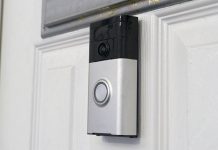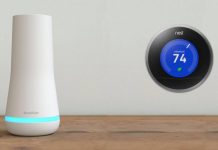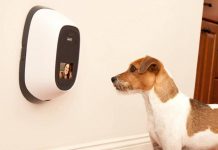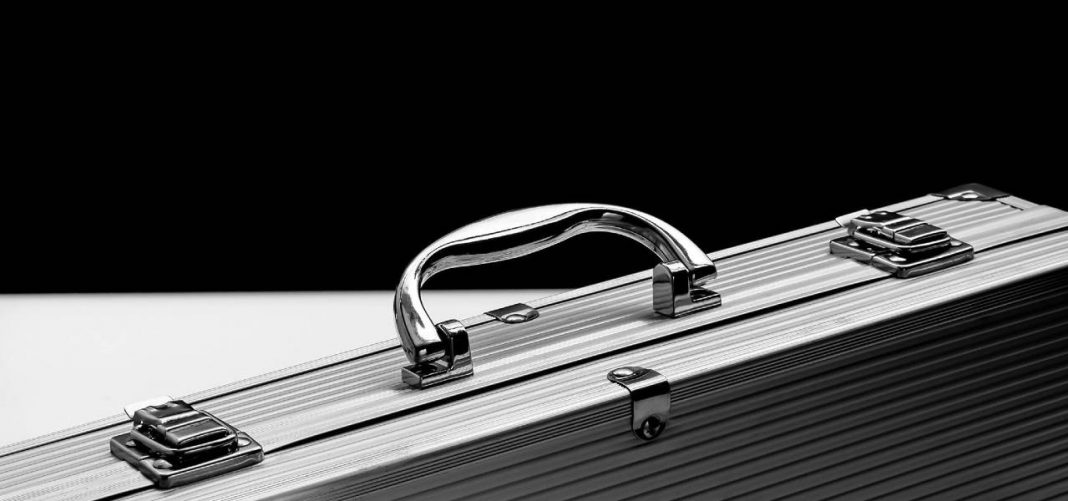UPDATED February 10, 2022 This piece has been updated to reflect the emergence of new technology


Christian Mathews Security Writer
According to the FBI’s United Crime report, a record 1,579,527 burglaries took place in 2015. Of these, 448,617 involved targeting business premises. As is the case with most statistics such as this, the figure is likely to rise. As a business owner, it must be tough trying to figure out which is the best security system business. To make it worse, there’s so much noise out there. Everyone is trying to front their commercial security solutions as the best, without offering any real value.
The goal of this article is to take the confusion out of it all. You can find out all there is to key features you should be looking for in business security systems in this article.
1The difference between home and business security systems
In most instances, business security systems are more advanced and complex compared to those used in homes. Unless, of course, if you happen to have a “Mona Lisa” hanging around your home. In which case your home security system would be more sophisticated than the average commercial security system.
The reason for this is simple. In a commercial setup, the needs, risks and variables in place are more than in a residential case.
Commercial security systems are therefore likely to cost more, require more storage, and cover a wider range of security risks.
2Installation – DIY vs Professional
There’s no definite pick with this.
Depending on your preferences, budget and how handy you are when it comes to DIY projects, you may install the security system by yourself or opt for professional installation.
However, here are a few pointers you may want to consider:
- Generally, professional installation will cost more than if you were to do the installation yourself. Upfront, it may seem to cost less, with professional installation, but over time the cost increases. The catch being, some firms charge you with a small initial investment at the start. Then have you pay more in the service payments that come with the contract.
- DIY installation is less costly in the long run. The initial cost to get the equipment may be high, but you won’t have to deal with extra service payments that come with contracts.
- Professional installation is more comprehensive. i.e. Some security solutions may offer security assessments, something quite crucial in ensuring you cover all possible threats or vulnerabilities your business faces or has.
- Another plus for professional installation is the peace of mind that comes when you know your business’s security system was installed by someone who knows what they’re doing. You may also find it impractical for DIY installation if your business premise is quite vast. Maybe you find the need to cover some part of the premise and the vantage point for the camera is inaccessible to reach for you.
Whichever option you choose to go with, be sure it suits your business’s security needs.
3Contract vs No contract
This again comes down to your needs, budget, and preferences.
If you’re on a tight budget, you should go for the security system with no contract. It is the least costly option.
If cost isn’t an issue when deciding, the security system with the contract model is your best pick. Other than the downside of being costly, the pros that come with the contract model are plenty. Professional monitoring of your video surveillance feeds and prompt response are just but a few of the benefits that come with the contract model.
4Equipment used in the security system
Most commercial security system solutions nowadays offer so much, in terms of the equipment used in the security systems. For clarity, here is a rundown of what to expect in a basic commercial security system:
Video Monitoring
You can expect to have cameras for video surveillance as part of the security system package.
You can choose to take this further with “dummy cameras” (these do a good job deterring burglars and shoplifters) or even with hidden cameras if you suspect theft by some of your employees.
Apart from deterring burglars, video footage can be used as evidence in court.
Alarm System
According to the FBI’s 2015 Unified Crime Report, an astonishing 60% of burglars are likely to give up a raid if they find their target has an alarm system.
With that in mind, always ensure the commercial security system you go for has an alarm component to it.
When it comes to connectivity, a wireless alarm system is the best, specifically one that operates on a cellular connection.
Access Control
A robust business security system should have a modern access control feature. i.e. The use of key fobs, RFID access cards, passwords and pins (Personal Identification Number(s), or even biometrics, if the budget allows it.
The good thing about this is the ability to grant access to as many people as you like. It allows you the option of monitoring movement within your business premises.
Another plus is the ability to revoke access as you wish. So you never have to replace locks each time an employee quits or is fired.
Back to the issue of monitoring movement within your premises. If you suspect theft by customers or employees, you can always make use of “audit trails” in your system to confirm your suspicions and even nab the culprits.
Some security options can even have the option of setting “tripwires”. You get alerts each time someone tries to access prohibited areas.
Fire, Flood & Carbon Monoxide Detection
Apart from securing your business from threats by burglars or dishonest employees, a proper business security system should protect your most valuable asset. Your people.
It should ensure the safety and wellbeing of your employees, customers, and anyone else that may be on your premises.
To do this, it should feature fire and carbon monoxide detectors; and in some places, also be able to detect other environmental hazards like floods.
5Cellular vs Landline connectivity
In this regard, your decision will be influenced by the location of your business.
In an ideal scenario, your business is located in a place with no network interference and generally has good cellular network coverage. Cellular connectivity for your commercial security system trumps landline connectivity.
Not only is landline connectivity what many would consider “old school”, but it’s also unreliable and prone to interference by weather conditions.
However, your business might be located at a place with low cellular network coverage or prone to network interference.
In this case, you should go with a commercial security system with landline connectivity.
6Self-monitoring vs. Professional monitoring
If you choose to go with the contract model for your security system, you’ll have the option of having professional monitoring of your security camera feeds.
While you can monitor your video surveillance feed by yourself, you’re better off leaving this task to the professionals.
Some of the perks of professional monitoring include 24/7 coverage. You may get the option for instant response in case of a burglary or some other emergency. The security company can send someone to your business or even contact the police or other emergency operators in these cases.
The only downside is the cost. If your business needs proper security, you should choose professional monitoring over self-monitoring.
7Remote video access
With remote viewing access, you can either access the live feed from the security cameras at your premises or the live feed can be monitored by professionals.
The live feed from security cameras are transmitted via the internet to your smartphone or computer.
8Smart App integration
With smart app integration, every component of your business security system is tied together.
You can grant or revoke access to your business premises, access live video feed of your business premises and even set off alarms, all through a single application on your smartphone.
9Final thoughts
The features included are few, but form the most basic security features. That doesn’t mean you should be limited with this. Other security solutions go beyond this, including motion sensors which are integrated with cameras. This means recording only takes place when there’s a movement within the premises or sensors on glass and doors which are integrated with the alarm system. You can however expect to pay more for the extra features.
Beyond a security system, you may consider other physical safeguards and learn what is the purpose of physical security safeguards. There are other internal ‘threats’ to your business, like contractors or employees and knowing how to handle a disgruntled employee or have data access policies in place can go a long way to keeping your business safe.

















































